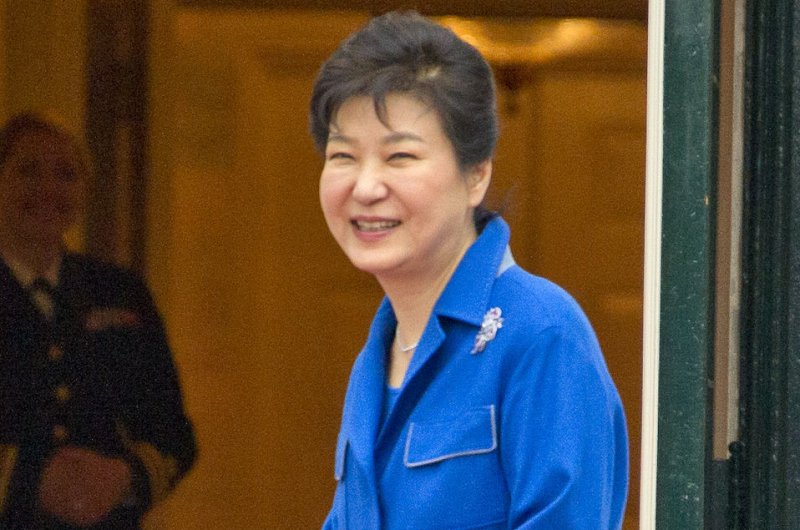South Korean President Park Geun-hye’s ruling Saenuri Party was slammed in North Korea state media Friday after the party lost a majority of parliamentary seats during elections Wednesday. File Pool Photo by Ron Sachs/UPI |
License Photo
SEOUL, April 15 (UPI) -- North Korea state media reported on the South's legislative elections, highlighting the losses of the ruling conservative party of South Korean President Park Geun-hye.
The brief announcement was Pyongyang's first response to the election outcome.
The ruling Saenuri Party had lost the parliamentary majority during elections Wednesday, for the first time in 16 years.
North Korea's state-controlled news agency KCNA reported that on April 13 "parliamentary elections were held in South Korea," and that the "Saenuri Party had lost the majority of seats to the opposition Minjoo Party and the People Party."
"As a result of the elections, the Minjoo Party has become the No. 1 party at the National Assembly," North Korea said in statement.
"Saenuri party leaders have admitted to defeat and resigned," Pyongyang added, leaving out any commentary or analysis on the election outcome.
A spokesman for North Korea's educational and culture committee said the election reflected the "rigorous judgment of the South Korean public," Yonhap reported.
The Saenuri Party has been "swinging the blade of fascist coercion, in order to strangulate progress and democracy, justice and truth," the North Korea spokesman said.
The pro-Pyongyang newspaper Choson Sinbo in Japan issued an editorial taking a similar position, criticizing Park's administration for "economic bankruptcy, disruption of North-South relations, and using the North's hydrogen bomb test and satellite launch as pretexts for anti-North Korea" policies.
In South Korea, the election results are attributed to largely economic factors.
South Korean growth has remained sluggish during Park's term in office, and double-digit youth unemployment has invited public criticism of Seoul's policies.
The government has also been faulted for a tougher approach toward left-wing activists.
South Korean newspaper Kyunghyang Shinmun reported Friday the Saenuri Party's approach to governance has been marked by controversies, including the issue of nationalizing school textbooks, passing an anti-terrorism law that could heighten surveillance and shutting down the jointly operated factory park in Kaesong.















